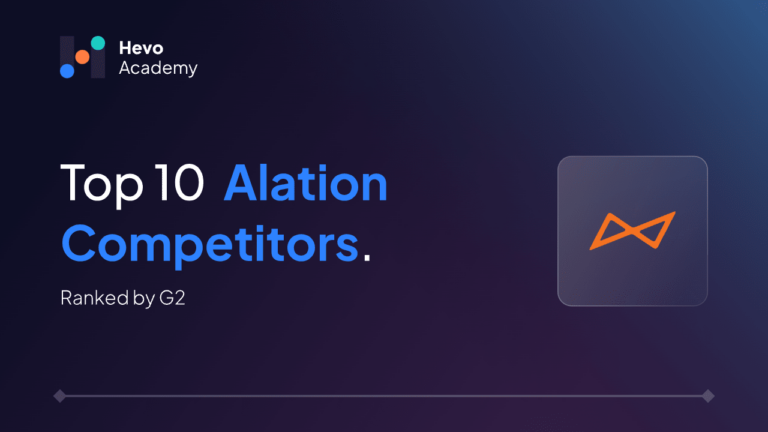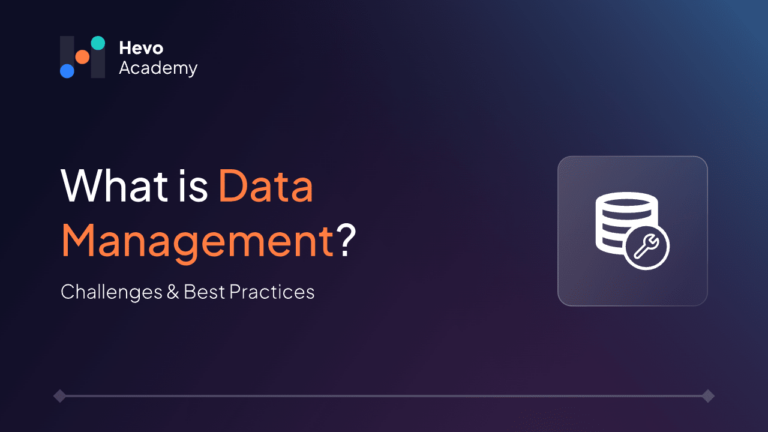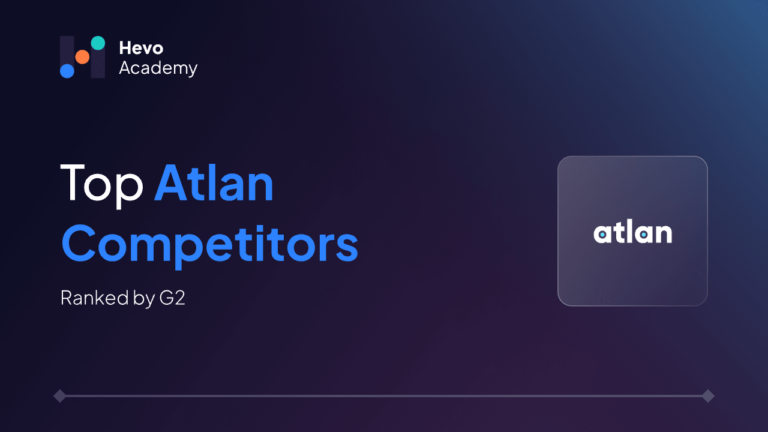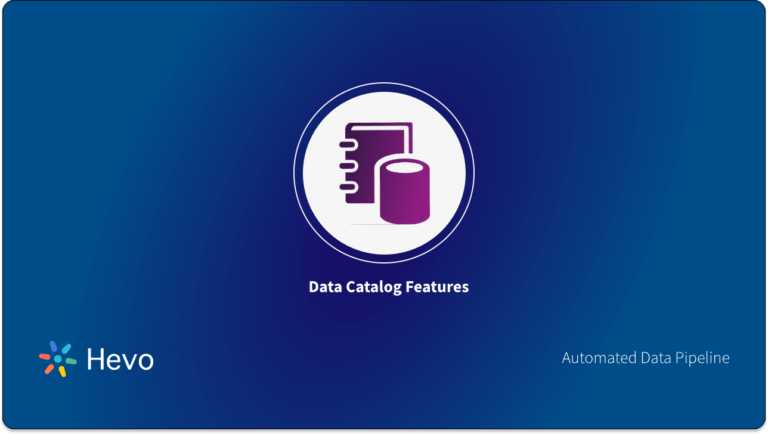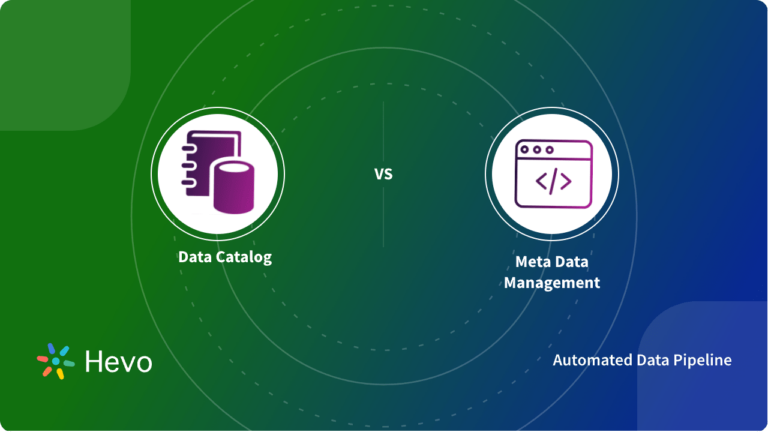In today’s world, driven entirely by data, everything is about having a strong cataloging tool to tap into an organization’s data. Though Alation dominated this space, other powerful tools boasted impressive features and unique capabilities. Next is a blog on the top 10 Alation competitors and their alternatives, focusing on their top features, pricing, and why you would want them for data cataloging.
Table of Contents
What does a Data Catalog Tool offer?
The following are the first factors to consider when selecting a data catalog tool.
- Data Governance: How much does the tool help with data governance, specifically the management of policies and their compliance?
- Integration capabilities: Does this integrate with the existing data sources, BI tools, and cloud services?
- Ease of Use: How intuitive is the interface, and does it support teamwork?
- Scalability: Will the tool scale out to meet your organization’s ever-evolving data needs?
Check out Data Catalog Features in detail to get a better understanding of what a data catalog provides.
Looking for the best ETL tools to connect your data sources? Rest assured, Hevo’s no-code platform helps streamline your ETL process. Try Hevo and equip your team to:
- Integrate data from 150+ sources(60+ free sources).
- Utilize drag-and-drop and custom Python script features to transform your data.
- Risk management and security framework for cloud-based systems with SOC2 Compliance.
Try Hevo and discover why 2000+ customers like Ebury have chosen Hevo over tools like Fivetran and Stitch to upgrade to a modern data stack.
Get Started with Hevo for FreeTop 10 Alation Competitors
1. Alteryx
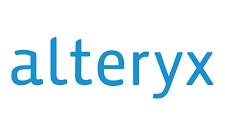
G2 rating: 4.6(619)
Alteryx is an extremely powerful data analytics platform that can handle everything from end-to-end data preparation and data blending to advanced data analytics. It allows its consumers to accelerate workflow development in this tool using a relatively simple drag-and-drop interface without requiring extensive coding.
Features
- End-to-End Data Analytics: Supports data preparation, blending, and advanced analytics.
- Drag-and-Drop Interface: User-friendly interface for building data workflows.
- Integration with BI Tools: Seamless integration with popular BI tools like Tableau and Power BI.
- Automation: Automates repetitive tasks and workflows, improving efficiency.
Pricing
- An entry-level plan for individual users or small teams is needed.
- Collaboration and automated workflow management for mid-sized organizations.
- Advanced analytics, large-scale deployment, and premium support for large enterprises.
2. Atlan
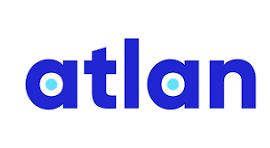
G2 Rating: 4.6(97)
A next-generation data collaboration platform integrated with diverse data tools enriches the collaboration of teams and governance. It is very intuitive, highly scalable, and suitable for small and large teams.
You might want to check out the Top Atlan Competitors as well to get an overall comparison of the alternatives available.
Features
- Collaboration-First Design: Built for team collaboration with shared annotations and tasks.
- Automated Data Lineage: Maps data flows and dependencies automatically.
- Integration Hub: Connects with various data sources and BI tools.
- Customizable Workflows: Allows the creation of custom workflows for governance and quality checks.
Pricing
- Free for small teams with basic features.
- Advanced collaboration, data lineage, and tool integrations.
- Enhanced security, compliance, and personalized support.
3. Google Data Catalog
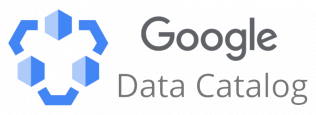
G2 Rating: 4.4(28)
This is a fully managed cloud-native metadata management service that allows users to make data discovery more accessible and intuitive. It smoothly fits into the Google Cloud ecosystem, allowing for advanced querying capabilities and datasets that are large.
Features
- Unified Data Catalog: Centralized metadata management across Google Cloud.
- Data Discovery: Advanced search and data tagging capabilities.
- Integration with Google Services: Seamlessly integrates with other Google Cloud services.
- Security: Enterprise-grade security features, including data encryption.
Pricing
- Basic cataloging with API call limitations.
- Advanced data discovery, tagging, and Google Cloud integrations.
- Enterprise-level features, including enhanced security and support.
Also, check out data catalog pricing in detail to get a clear understanding of the cost requirements.
4. Talend Data Catalog
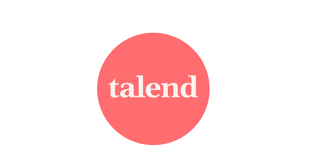
G2 Rating: 4.3(4)
With Qlik’s recent acquisition, the Talend Data Catalog provides complete metadata management and data governance, with ease of integration across the Talend suite. Extremely easy to use and feature-rich, it is sure to excite any organization wanting increased visibility and enhanced collaboration on data.
Features
- Automated Metadata Management: Discovers and catalogs metadata from various sources.
- Data Quality Profiling: Tools for profiling, cleansing, and enriching data.
- Data Lineage: Tracks data lineage across systems for transparency.
- Integration with Talend Tools: Seamlessly integrates with other Talend products.
Check out Data Catalog vs Metadata Management if you are having troubles differentiating the two concepts.
Pricing
- Full data governance, advanced metadata management, and integrations.
- Cloud edition supports cloud-based features with enhanced scalability and support.
5. SAP Data Intelligence
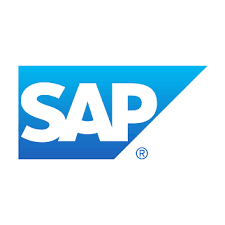
G2 Rating: 4.1(10)
SAP Data Intelligence is a harmonized, common data management platform where integration, orchestration, and governance can be done with diverse data from the environment. The AI and machine learning features of it are highly advanced, too, which also make data processing and analytics applied to the most complex data operations in major volumes more feasible.
Features
- Comprehensive Data Management: Combines integration, cataloging, and orchestration.
- AI and Machine Learning Integration: Enhances data processing and analytics with AI/ML.
- Multi-Cloud Support: Supports deployment across cloud and on-premises environments.
- Data Governance and Compliance: Ensures compliance with data privacy regulations.
Pricing
- The basic plan includes essential data management features for small teams.
- The professional plan includes advanced analytics, AI integration, and enhanced data processing.
- The enterprise plan includes full-scale governance, real-time processing, and enterprise support.
6. Informatica EDC
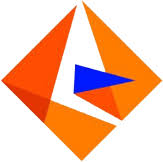
G2 Rating: 4.3(21)
Informatica EDC provides enterprise-class metadata management and data governance capabilities that provide full visibility into data discovery and lineage tracking. This integrates with a range of sources and supplies additional AI-driven insight that helps further advance data visibility and compliance.
Features
- AI-Powered Data Discovery: Automatically discovers and catalogs data across the enterprise.
- Metadata Management: Centralized management and enrichment of metadata.
- Data Lineage Visualization: End-to-end data lineage tracking.
- Customizable Dashboards: Create custom dashboards to monitor data assets.
Pricing
- The Basic plan includes essential metadata management and discovery tools for small teams.
- The Professional plan includes AI-driven discovery, advanced lineage, and enhanced metadata management.
- The Enterprise plan includes a full suite of data governance and advanced analytics.
7. IBM Watson Knowledge Catalog
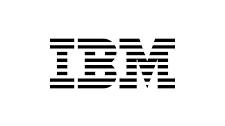
G2 Rating: 4.1(18)
IBM Watson Knowledge Catalog is an exceptional cloud solution that uses AI to automate data discovery, data governance, and data collaboration. More importantly, it also integrates seamlessly with the wider IBM ecosystem, making it a very exciting tool in managing enterprise data assets.
Features
- AI-Driven Cataloging: Automated discovery, classification, and cataloging of data assets.
- Governance and Compliance: Comprehensive tools for data governance and regulatory compliance.
- Integration with IBM AI: Seamless integration with IBM Watson AI services.
- Role-Based Access Control: Secure access to data based on user roles.
Pricing
- The Lite plan is free and has limited capabilities for small projects.
- The Standard plan has Comprehensive governance, AI insights, and IBM Cloud integration.
- The Enterprise plan is fully-featured with advanced analytics and 24/7 support.
8. data.world
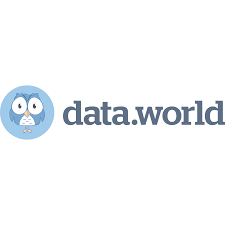
G2 Rating: 4.2(13)
data.world’s cloud-native data catalog and collaboration platform integrates seamlessly with data warehouses and BI tools, offering a highly intuitive interface and community-driven approach that is accessible and highly scalable for any size organization.
Features
- Community-Driven Catalog: Collaborative platform for sharing and discovering data assets.
- Linked Data Architecture: Enhances data discoverability through connected data ecosystems.
- Data Governance Framework: Tools for managing governance, policies, and compliance.
- Advanced Search: Powerful search capabilities with metadata and tag-based filtering.
Pricing
- The free plan has a basic community edition with limited features.
- The Pro plan has advanced governance and collaboration tools with extended API access.
- The Enterprise edition is tailored for large organizations with enterprise-grade security and support.
9. Collibra
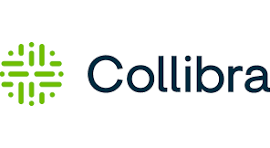
G2 Rating: 4.2(76)
Collibra is a leading Data Governance and Cataloging platform having the strong framework and collaborative toolsets. Ideal for organizations needing broad governance, data lineage, and privacy compliance.
Features
- Data Governance Framework: Offers a complete solution for data stewardship, quality management, and policy enforcement.
- Automated Data Lineage: Visualizes data flow across systems, aiding in traceability.
- Data Privacy and Compliance: Built-in tools for managing data privacy regulations.
- Collaboration Tools: Facilitates collaboration among data stewards, analysts, and business users.
Pricing
- The standard plan has basic governance and metadata management for small teams.
- The Enterprise plan has Advanced governance, automated lineage, AI-driven tools, and enhanced collaboration.
- Custom plans are tailored solutions for large enterprises with dedicated support.
10. Amundsen

G2 Rating: NA
Amundsen is an open-source data discovery and metadata management platform for any organization to catalog, search, and govern data assets. It provides complete visibility into data lineage, empowering users to locate and understand the data required to perform analytics and make decisions, without adding significant complexity.
Features
- Open-Source Flexibility: Customizable and free, suitable for organizations with development capabilities.
- Automated Metadata Ingestion: Automatically ingests metadata from data sources and BI tools.
- Search and Discovery: Google-like search interface for finding data assets.
- Lineage and Impact Analysis: Visualizes data lineage and its impact across the organization.
Pricing
- Open-Source plan is free and customizable with community support.
- It has a paid tier with hosting, support, and enterprise features.
- Custom plans have tailored pricing for large-scale enterprise needs.
Head-to-Head Comparison Alation Alternatives
To help you decide, here’s a quick comparison table of the top 10 Alation competitors, including Alation itself.
| Tool | Integration Capabilities | Ease of Use | Pricing | Scalability |
| Alation | Extensive integrations with data sources and BI tools | User-friendly with intuitive search | Custom pricing based on features | Scales efficiently for large enterprises |
| Alteryx | Integrates with various BI tools | Drag-and-drop simplicity | Designer to enterprise pricing | Scales with organizational needs |
| Atlan | Connects with numerous data tools | Designed for team collaboration | Pricing for different team sizes | Scalable for both small and large teams |
| Google Data Catalog | Native integration within the Google Cloud ecosystem | Easy to use with advanced search | Tiered pricing based on usage | Scales within the Google Cloud ecosystem |
| Talend Data Catalog | Seamless integration with Talend suite | Easy to use with robust governance | Free to subscription pricing | Scales across cloud and on-prem environments |
| SAP Data Intelligence | Supports multi-cloud integration | Comprehensive and user-friendly | Tiered pricing based on features | Scales for large enterprise deployments |
| Informatica EDC | Integrates with various data sources and applications | AI-driven with advanced features | Subscription pricing model | Scales for enterprise data management |
| IBM Watson Knowledge Catalog | Strong integration with IBM tools | User-friendly, AI-driven features | Lite to enterprise pricing | Scalable within the IBM ecosystem |
| Data.World | Integrates well with data warehouses and BI tools | Community-driven, intuitive interface | Free to enterprise pricing | Scales across multiple environments |
| Collibra | Connects with numerous data sources and BI tools | Easy to use with a strong focus on governance | Tiered pricing based on usage | Scales across large enterprises |
| Amundsen | Customizable integrations | Simple and effective search | Open-source to enterprise pricing | Flexible and scalable open-source model |
Additionally, check out the importance of data quality management for businesses to efficiently manage your data.
Conclusion
Selecting the right data catalog tool depends on your organization’s specific needs, including data governance, integration, ease of use, and scalability. Each tool mentioned here offers unique strengths, making it a strong alternative to Alation. Whether a small team or a large enterprise, a data cataloging solution is tailored to your needs.
Take Hevo’s 14-day free trial to experience a better way to manage your data pipelines. You can also check out the unbeatable pricing, which will help you choose the right plan for your business needs.
FAQ on Alation Competitors
1. Who competes with Alation?
The list of other similar tools that Alation competes with includes Collibra, Informatica EDC, Google Data Catalog, Atlan, and IBM Watson Knowledge Catalog. These platforms are focused on data cataloging, governance, and metadata management and help address organizations looking to improve their data management capabilities.
2. What is the difference between Collibra and Alation?
While Collibra is more concerned with data governance and compliance and provides robust capabilities, Alation does exceptionally well in data discovery and collaboration, presenting results in a user-friendly interface. Both are powerful data cataloging tools but serve different needs in an organization.
3. What is the difference between Talend and Alation?
Talend Data Catalog is closely integrated with the greater Talend data integration suite, which cements it as one of the leading choices for organizations already using Talend. Alation has been suitable for advanced search and collaboration since it tries to focus on data cataloging and discovery.

